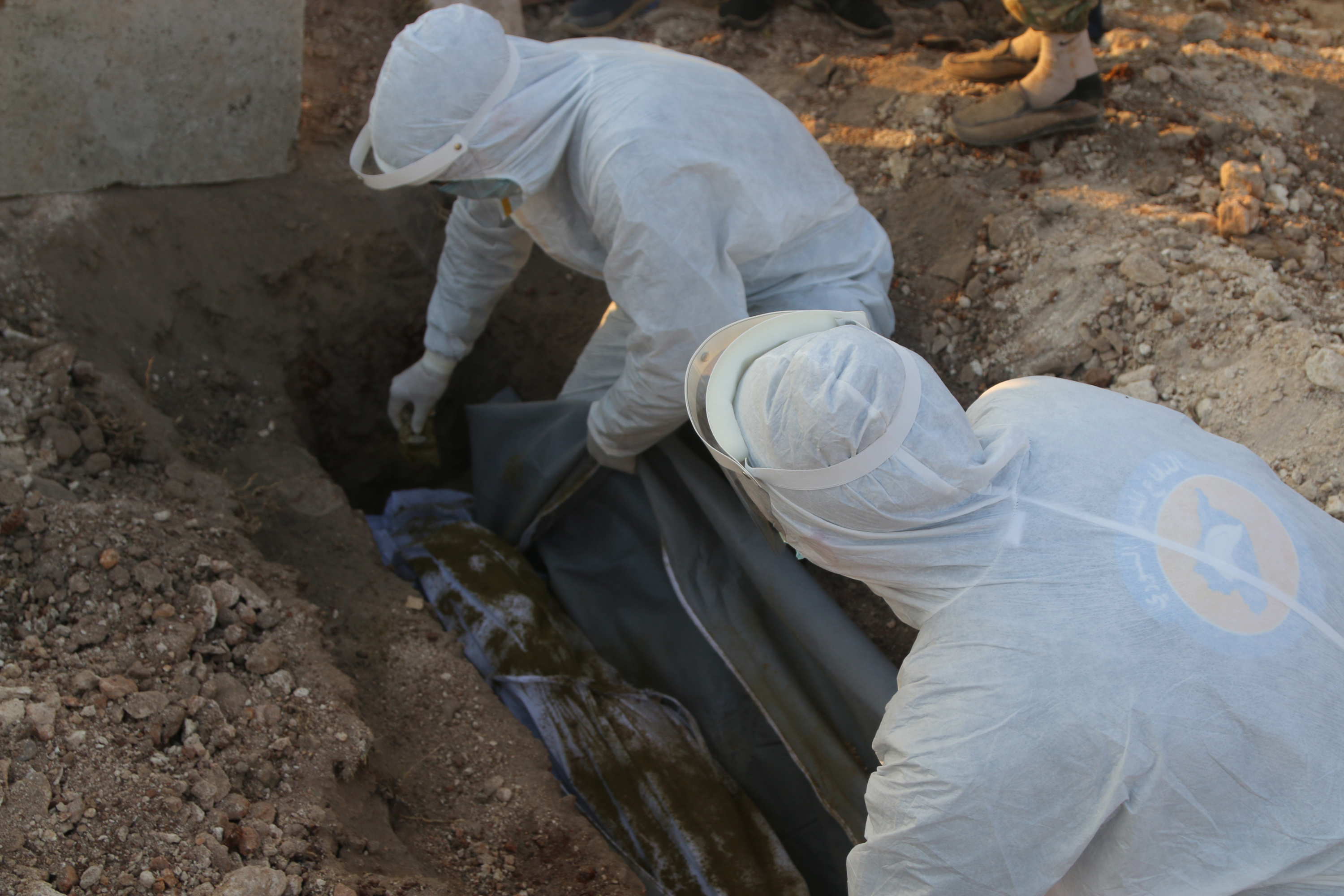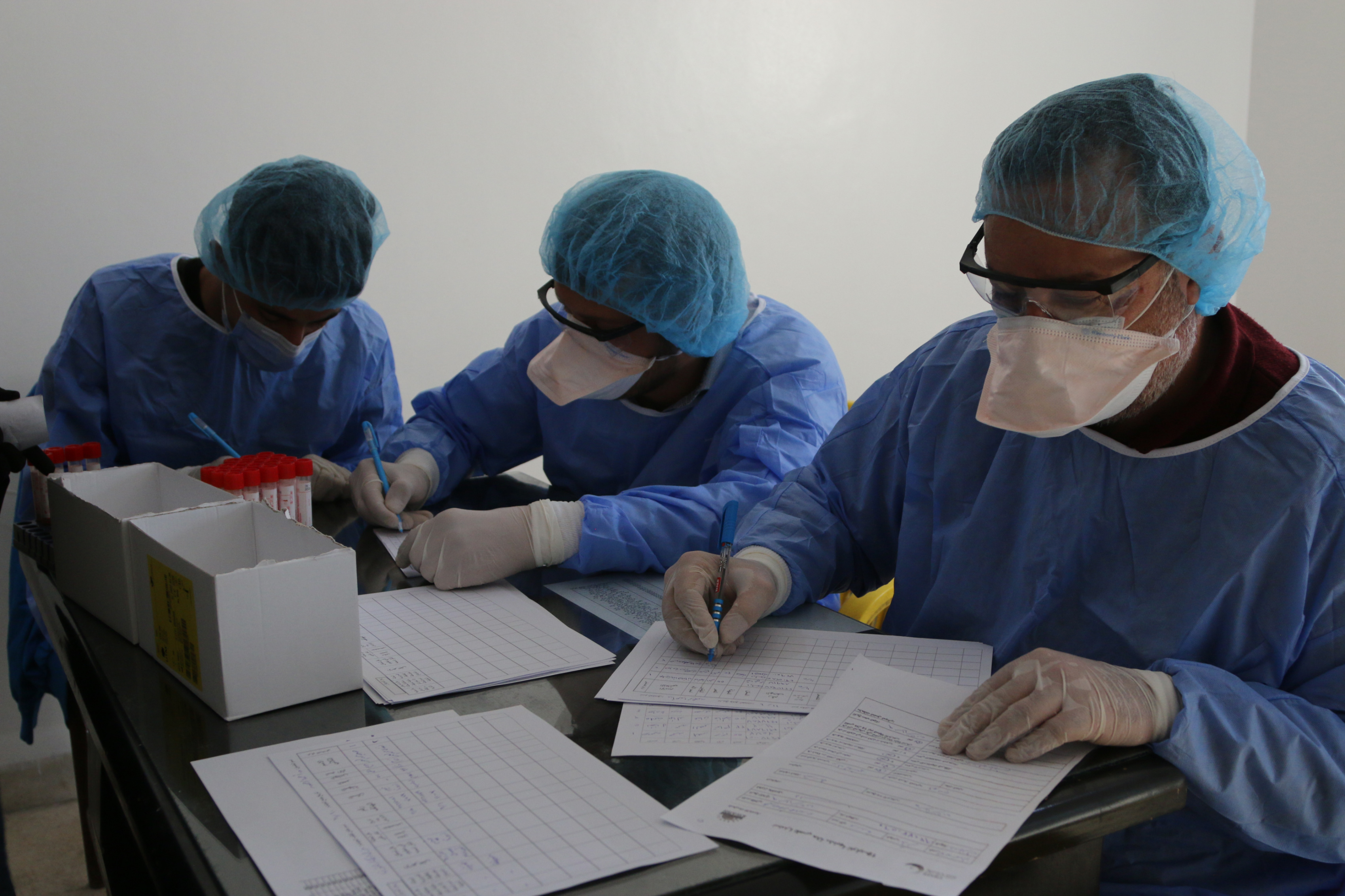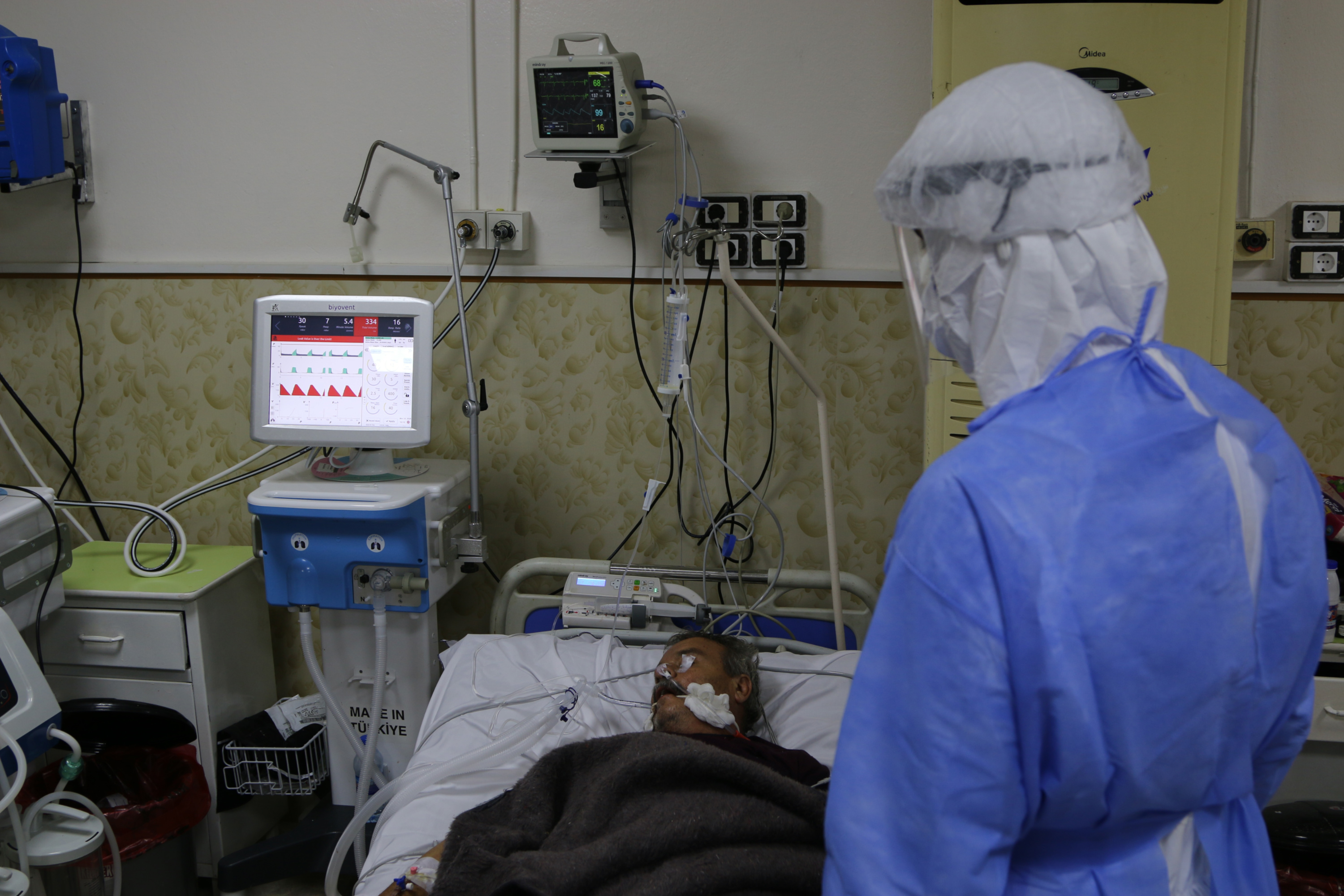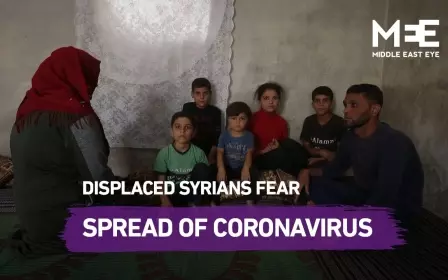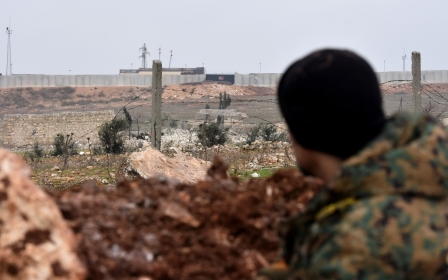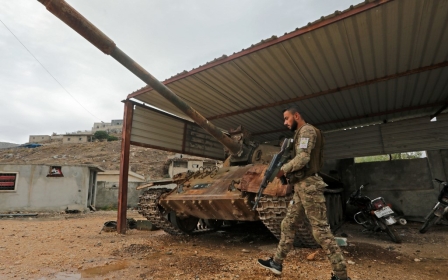'Before it's too late': Doctors in northwest Syria race to contain Covid-19 rise
The health system in Syria’s northwest is on the verge of collapse, doctors have warned, as the opposition-held region sees a sharp rise in Covid-19 cases in overcrowded camps.
Salem Abdan, director of Idlib’s health directorate, said the enclave has been recording around 400 new coronavirus cases on a daily basis in Idlib and northern Aleppo.
The total number of infections had reached 10,633 on Friday, with 89 confirmed deaths.
However, Abdan said the number of Covid-19 fatalities may be higher, as some deaths occurring in homes are not being officially recorded because doctors cannot be sure if they were related to the virus.
New MEE newsletter: Jerusalem Dispatch
Sign up to get the latest insights and analysis on Israel-Palestine, alongside Turkey Unpacked and other MEE newsletters
Since the global onset of the pandemic, the United Nations and aid agencies have warned of a potential health catastrophe in displacement camps in northwest Syria if the region was not prepared to contain the spread of the virus.
'We can say that we are on the verge of collapse if the virus continues to spread at this speed'
- Salem Abdan, doctor
Around half of Idlib’s three million people live in tents and makeshift homes, often with limited access to running water.
Abdan said the de facto government in Idlib has taken steps to limit the spread, including the closure of schools, universities and markets, but people’s response to some of the measures has been weak.
“Most of the people are displaced and poor, so they need to go to work every day in order to secure a livelihood for themselves and their families,” Abdan told Middle East Eye.
“Additionally, they are unable to social distance in camps because the tents are very close to each other.”
Testing
There are currently 15 quarantine centres treating mild coronavirus infections, while severe cases are transferred to one of the five dedicated Covid-19 hospitals in Idlib equipped, in total, with 80 ventilators.
“We have not yet reached the stage of complete collapse of the health system but we can say that we are on the verge of collapse if the virus continues to spread at this speed”, warned Abdan.
“All our ventilators are currently being used by patients, and we need additional ventilators,” he said, calling on aid organisations and the UN to speed up their response in northwestern Syria “before it’s too late.”
Saeed al-Saeed, member of Early Warning Alert and Response Network (EWARN), said there are four testing centres in Idlib city, where 300 swabs are taken per day, and 1,000 tests are carried out daily in all areas controlled by the opposition.
“About 40-50 percent of the tests in Idlib city centres are positive," he told MEE.
Saeed also blamed overcrowding in the area due to displacement for the increase in infection rates, and pointed to "people's lack of concern regarding the seriousness of the disease, despite the presence of deaths as a result of infection.”
The Assistance Coordination Unit (ACU) provides PCR kits, but due to the amount of testing, Saeed said centres regularly find themselves threatened with a shortage. However, their concerted efforts to secure more have meant that testing has not stopped yet.
Distress call
Wassim Zakaria, a doctor in Idlib, said that he expects cases to peak in the next couple of weeks, warning of the pressure such an increase would put on the struggling health sector.
"I sent a distress call and asked people to follow the safety rules after I saw that all hospitals are full of infected people, with no capacity to accept new patients,” Zakaria said.
“The distress call met a response from people and organisations, which began working on expanding some hospitals because they felt the danger of the health sector collapsing if the situation continued as it is.”
The Syrian American Medical Society (SAMS) runs the region’s first and biggest coronavirus-dedicated hospital in Idlib, with 60 intensive care beds, 30 of which are equipped with ventilators.
“All of these beds are full, meaning that we do not have a vacant place to accept new patients and we are waiting for a patient to be discharged to take in another,” said Ibrahim Abboud, director of SAMS coronavirus hospital.
Abboud said that, to date, 115 patients have been admitted to the hospital, 30 of whom have died given the lack of enough ventilators to treat all critical cases, especially that a lot of patients may need the machine for a long period of time.
“We have so far succeeded in removing three patients off the ventilators,” he said. The SAMS director added that his organisation relies heavily on health workers who constantly expose themselves to the risk of infection to “serve the people in the region.”
In September, Doctors Without Borders (MSF) said that almost 30 percent of infection cases in northwestern Syria were among health workers.
Middle East Eye delivers independent and unrivalled coverage and analysis of the Middle East, North Africa and beyond. To learn more about republishing this content and the associated fees, please fill out this form. More about MEE can be found here.


